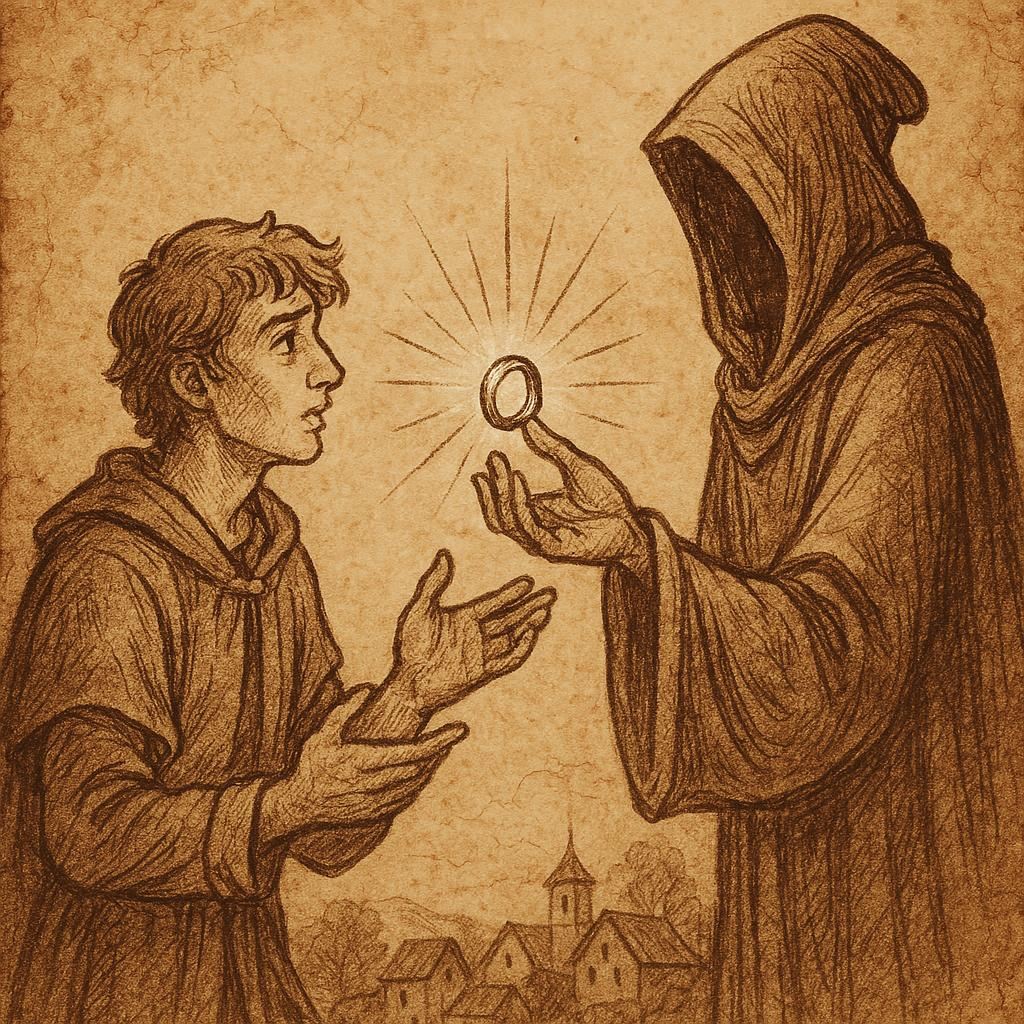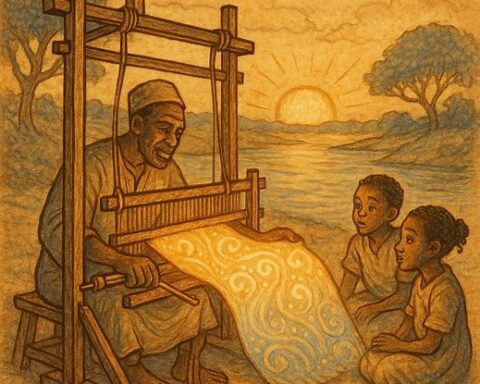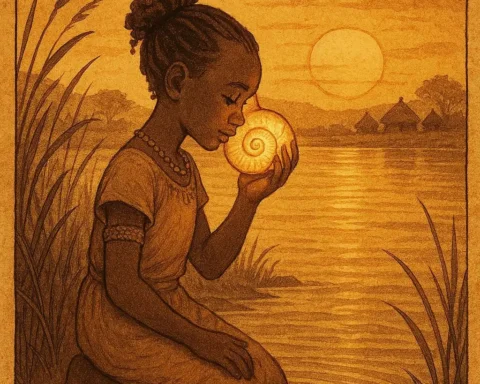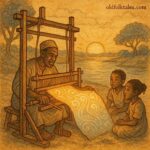In the land of Oualo, long ago, there lived a young man named Hamadou. He had a restless heart and a deep desire to learn, so he left his home and traveled to Kayor in search of knowledge. In Kayor, he found a wise seriny, a Muslim scholar, who became his teacher. Under the seriny’s guidance, Hamadou learned to read and write with patience and dedication.
At the school, among the many students who studied by the scholar’s side, there was one unlike the others. This student was the same age as Hamadou, sharp-eyed, and strangely mysterious. Hamadou did not know at first that this companion was no ordinary man, but a jinn. The jinn, unseen by human eyes unless they wished to be revealed, had chosen to learn alongside Hamadou.
One day, after lessons, the jinn came to Hamadou and spoke in a voice that was calm yet carried an unearthly echo:
“We are friends, you and I. You know how to read and write, but I do not. Since you are returning home, I will carry you back to Oualo with the swiftness of lightning. You may not know who I am, but I know you well. We were born in the same place. We jinns see humans clearly, but you cannot see us. When you return, if you wear this silver ring, you will be given the gift to see our world, our villages, and our people. But if you remove it or lose it, the vision will vanish forever.”
The jinn handed him a silver ring that shimmered faintly even in the shade. Then he instructed Hamadou and the other students to spread a sheepskin on the ground. “Sit upon it, close your eyes, and face the west.” Hamadou obeyed. At once, the sheepskin rose from the earth and soared into the sky like a bird on the wind. The students clutched the edges in awe as the ground fell away beneath them. In only moments, the sheepskin descended gently, landing them back in the familiar village of Oualo.
The next morning, curious and eager, Hamadou placed the silver ring on his finger. Instantly, his eyes opened to a hidden reality. The air shimmered, and villages of the jinn appeared before him, glowing softly as if lit from within. He walked into this world unseen by others and carried greetings from his jinn friend to the friend’s parents. They welcomed him warmly and invited him to visit often, especially at night when their world felt closest to the human one.
It was during these visits that Hamadou met Anta, the jinn’s sister. Anta was radiant, her beauty unlike anything he had ever known. She moved with a calm grace, her eyes reflecting both kindness and wisdom. Hamadou was captivated and soon declared his wish to marry her.
Anta listened but did not answer quickly. Instead, she gave him a solemn warning:
“We jinns live by unbreakable rules. We never lose our temper, we never lie, and we never betray secrets. Humans, however, are quick to anger, boastful, and deceitful. If you marry me, you must swear never to act in those ways. And above all, you must never reveal to anyone that your wife is a jinn. If you do, I will leave you forever.”
Hamadou promised with all his heart, and so they were married. True to her word, Anta visited him faithfully every Monday and Thursday, bringing joy and peace to his life. For a time, their secret union flourished.
But fate soon tested him. Misfortunes struck one after another. His millet granary burned to the ground. His prized horse collapsed and died. His great bull, the pride of his herd, also perished. Whispers began to circle, and his human wife, suspicious and bitter, accused him of bringing ruin upon their home through his hidden dealings with the jinn.
Tormented by grief and pressure, Hamadou broke his vow. In anger, he confessed the truth of his secret marriage. Word reached Anta, and her heart filled with sorrow. She came to him one last time, her face calm but her eyes heavy with sadness. Removing the silver ring from his hand, she said,
“Because you betrayed me, I must leave. From this day, you will no longer see me or the villages of my people.”
Before vanishing, she revealed the truth of his losses:
“You think the burning of your granary, the death of your horse, and the fall of your bull were curses. But it was I who saved you. Azrael, the Angel of Death, came for you. To protect your life, I threw him onto your granary, onto your horse, and onto your bull. Better those losses than your wife and child. But you broke your promise, and our union can no longer be.”
With that, Anta disappeared, never to return. Hamadou was left with nothing but regret. The silver ring was gone, the world of the jinn forever hidden, and the memory of Anta’s love lingering like a shadow he could never touch again.
Moral Lesson of Hamadou and the Jinn
This Wolof folktale reminds us that promises are sacred, especially when trust and loyalty are at stake. Hamadou gained love, wisdom, and even protection from death through his union with Anta, but his failure to keep his word cost him everything. The story teaches that broken promises destroy even the strongest bonds, and true harmony requires honesty, self-control, and respect.
Knowledge Check: Hamadou and the Jinn
Who was Hamadou’s teacher in Kayor?
Hamadou studied under a Muslim scholar called a seriny.What special gift did the jinn give Hamadou?
The jinn gave him a silver ring that allowed him to see the jinn and their villages.What rules did Anta ask Hamadou to follow before marrying her?
She warned him never to lose his temper, lie, betray secrets, or reveal that she was a jinn.Why did Hamadou lose his silver ring and the ability to see the jinn?
He broke his promise by revealing his secret marriage, so Anta left him and took the ring back.What was the true cause of Hamadou’s misfortunes?
Anta sacrificed his granary, horse, and bull to protect him from Azrael, the Angel of Death.What is the central moral lesson of the folktale Hamadou and the Jinn?
The story teaches the importance of keeping promises and respecting trust in relationships.Source: Wolof folktale, Senegal






